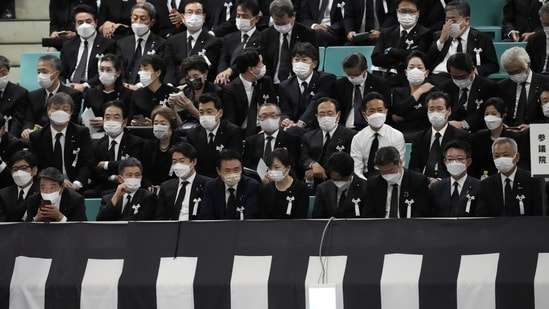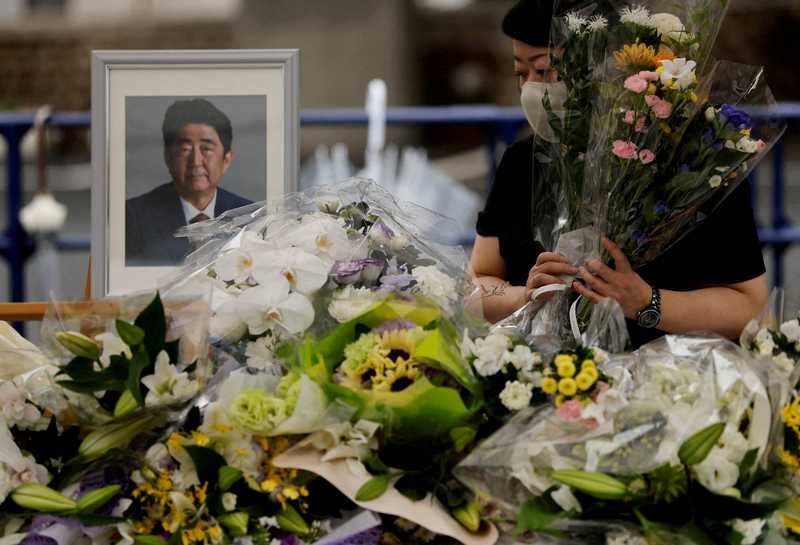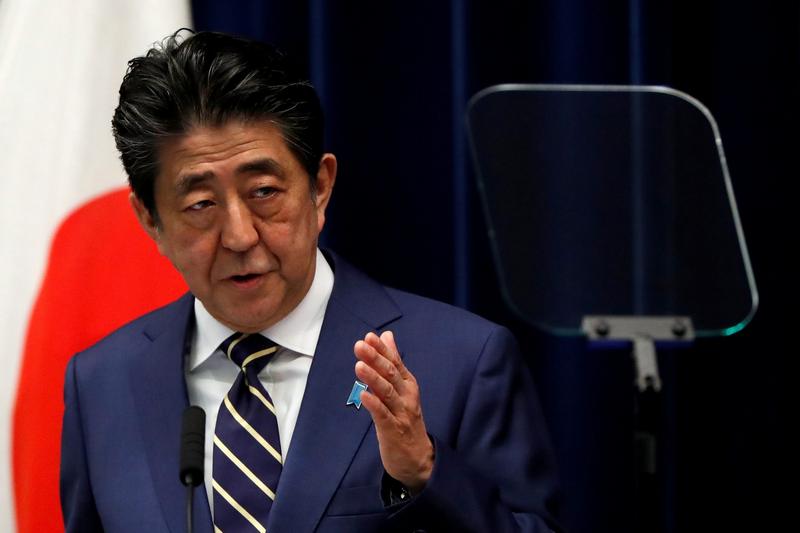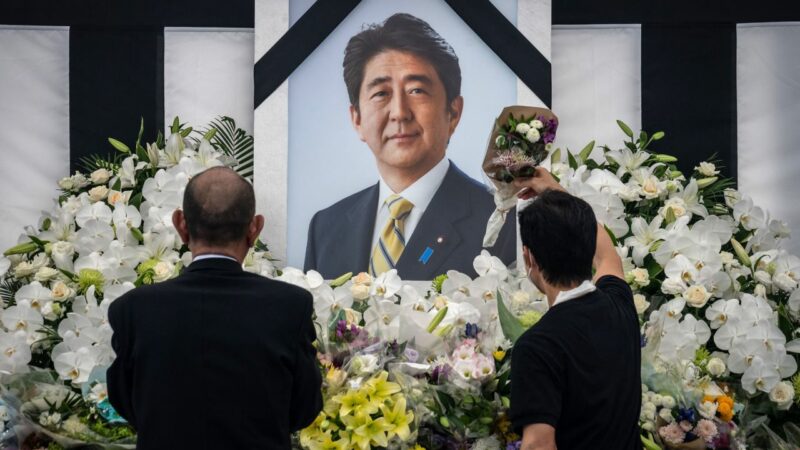

Barely one week after world leaders gathered in London for the state funeral of Queen Elizabeth II, they gathered again in Japan for another state funeral. This time, it was for the former Prime minister of Japan, Shinzo Abe, who was assassinated in July.
The controversial state funeral divided Japan into two equal parts. For the older Japanese generation, Shinzo Abe caused more harm than good hence there is no need for a state funeral. For the younger Japanese population, the longest-serving prime minister of the country brought stability to the Asian country, making him worthy of a state funeral.
Abe’s former adviser, Suzuki, said the former prime minister “had a futuristic vision.”
“He saw that China will rise, and the United States will retreat from the region. In order to keep the United States involved in this region, he realised we need to have the power to defend ourselves,” Suzuki added, in defense of a state funeral.
Akie Abe, the widow of Shinzo Abe, carried his ashes from their home to the Nippon Budokan Arena, which was the venue for the funeral.
In his remarks, Prime Minister Fumio Kashida described his former ally as a courageous man that had done his best.
“I feel heartbreaking grief,” Kishida said, facing Abe’s large photograph close to his ashes.
“Courage is doing what is right. Abe-san, you were a person of courage. People around the world will look back fondly on your time in power. Abe-san, Prime Minister Abe … you did good work. Please rest in peace,” Prime Minister Kashida added.
The ceremony includes a 19-gun-salute, a musical performance, and an honor guard. Dignitaries also had the opportunity to lay flowers and take a bow in front of Abe’s ashes. A reception was later held for the dignitaries.
Who attended?
Leaders and representatives of over 40 countries were in Japan, including US vice-president Kamala Harris. Other leaders present were the Prime minister of India, Narendra Modi, Australian Prime Minister Anthony Albanese, South Korean Prime Minister Han Duck-soo, President of Vietnam, Nguyen Xuan Phuc, and James Cleverly, the foreign secretary of the United Kingdom.
Top Japanese politicians, especially members of Abe’s Liberal Democratic Party, attended the state funeral, but prominent members of the opposition Constitutional Democratic Party boycotted it.
“It is only natural that we offer our condolences to the deceased. In that sense, I would like to once again offer my sincere condolences to former Prime Minister Abe, who was killed by a bullet,” leader of the opposition, Kenta Izumi, said.
“We are opposed to the state funeral because of the lack of precedence and the fact that the decision was made without the involvement of the [parliament], which is very problematic,” Izumi continued.
The arguments against the state funeral
There was a long queue of Japanese wanting to pay their last respect to the former Prime minister, who died at 67. However, the long queues were not an indication that every Japanese was happy with the state funeral. Last week, a man set himself ablaze to protest Shinzo Abe’s state funeral. Like the over 70-year-old man, many Japanese do not see their former leader as worthy of a state funeral. Their reason could differ, but the end result was the same. They protested while others were mourning.
Machiko Takumi, one of the protesters, said he was against the state funeral because of Abe’s involvement with the Americans.
“Abe passed the collective self-defense bill. It means Japan will fight with the Americans, which means he made Japan able to go to war again, that’s why I oppose a state funeral,” Takumi said.
Under article 9 of Japan’s post-war constitution, the “Japanese people forever renounce war as a sovereign right of the nation and the threat or use of force as means of settling international disputes.” Article 9 has been controversial, especially after the arrival of US forces in Japan. Many Japanese believe Abe went against the constitution, but the country’s supreme court said the presence of the US forces in Japan was not contrary to the country’s law.
Professor Koichi Nakano of Sophia University in Tokyo said: “Abe is seen as somebody who was not accountable to the people.”
“Whatever he did, he did it against the constitutional principles. He did it against the principles of democracy,” he added.
25-year-old Lori Fujiwara believes the government would have contacted the citizens before deciding on a state funeral.
“I am frustrated and angry that we let the government do whatever they want without consulting the people. We, the younger generation need to speak out more for our own future, that’s why I am here,” Fujiwara said.
25-year-old Ayaka believes the state funeral was too expensive, especially at a time when the country was facing a severe economic crisis.
“I could not stay at home while they are spending so much money and inviting so many guests while there are Japanese people suffering from the typhoon last week,” Ayaka said.
The state funeral for the former Prime Minister cost the country approximately $12 million in taxpayers’ money, which some citizens believe was too much for the funeral of just one man.





0 Comments